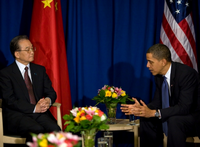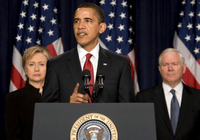
In the aftermath of Copenhagen, many observers are lamenting the apparent unwillingness of governments to confront climate change. However, this unwillingness simply reflects an essential truth about public policy: The immediate always trumps the distant. For most policymakers, the threat of climate change remains a distant one. Governments prioritize immediate threats, even if doing so hastens the melting of glaciers and the rising of sea levels that may eventually destroy habitats and nations. Another vivid illustration of this mindset is the acquisition by foreign governments of vast tracts of farmland across the developing world. These land deals leave immense carbon […]


